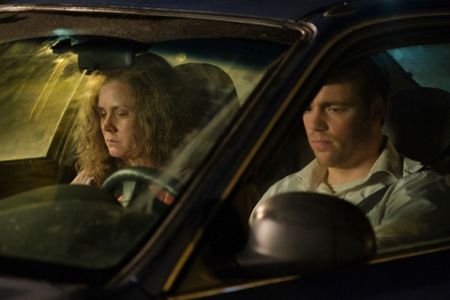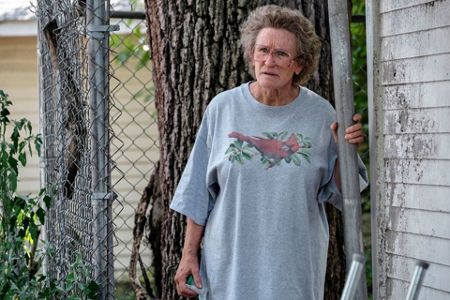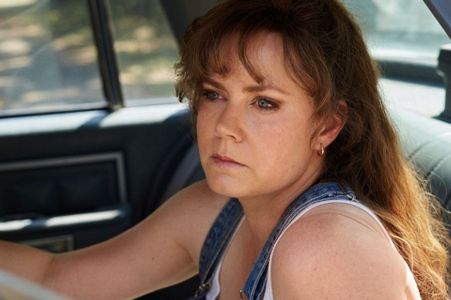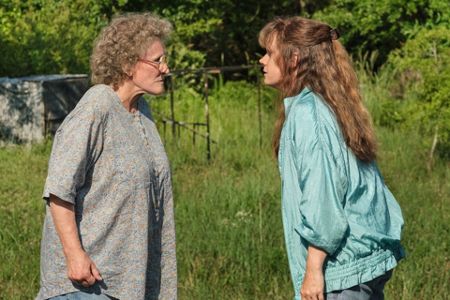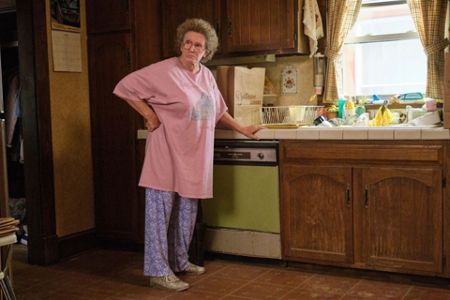J.D. Vance's “Hillbilly Elegy,” an election-year explainer to liberal America about the white underclass that fueled Donald Trump's rise, has been reborn as blandly overbaked awards bait.
Ron Howard's adaptation, penned by Vanessa Taylor, has mostly done away with the moralizing social examination that made Vance's bestseller — the second half of that subtitle, “A Memoir of a Family and Culture in Crisis” — such a lightning rod. The 2016 book came at the moment many were searching for explanations for the political shift taking place across Appalachia and the Rust Belt. “Hillbilly Elegy,” a pick-yourself-up-by-your-bootstraps cultural critique-slash-tribute to the author's Ohio-Kentucky heritage, emerged as one of the trendiest answers.
Howard's film arrives on the heels of another election cycle without a whiff of the same analysis — Vance wrote of “learned helplessness" and “something almost spiritual about the cynicism of the community at large" — and he instead leans into the colorful and difficult characters of Vance's family for a neater redemption arc. That has a dual effect. This “Hillbilly Elegy” has stripped away the most sermonizing, debatable parts of the book, but it's also denuded it of any deeper purpose, leaving us with a cosplay shell of A-list actors chewing rural scenery.
Howard's “Hillbilly Elegy,” in theaters Wednesday and on Netflix on Nov. 24, is well-meaning. But it teeters constantly on the edge of parody, never slowing down enough to let its characters — a shouty, melodramatic bunch fighting through a chaotic world of poverty, addiction and abuse — come through as much more than caricature. If the book begat a blizzard of op-eds, the film is more likely to inspire only memes of its most Appalachia soap opera moments.
It's a jumble of timelines but the basic shape of “Hillbilly Elegy” is a reluctant homecoming. J.D. Vance (Gabriel Basso as an adult, Owen Asztalos as a kid) gets a call from his sister (Haley Bennett) that their mother Bev (Amy Adams) has overdosed. Leaving his girlfriend (Freida Pinto), he drives home from Yale Law School when he's on the cusp of a major job interview to the decaying steel down of Middletown, Ohio. The trip forces him to reckon with his roots, bringing back a flood of memories just as he's leaving his past behind.
Some memories are better than others. Anything with grandma, for starters, is something to behold. That's because Glenn Close, buried under prosthetics, a coral reef of frizzy hair and plate-sized glasses, is the crochety, cigarette-smoking, foul-mouthed Mamaw. Close, who was so brilliantly subtle in 2018's “The Wife,” has just about broke the needle in the other direction. Her Mamaw takes in young J.D. after a series of incidents with Bev, and it's in those scenes that “Hillbilly Elegy” works best. Close's performance is over-the-top but there's grit and strength in it.
It's harder to find something to hold on to in Adams' performance. Her character is such a loud, grating mess of fury, pain and addiction that Adams struggles to make her coherent. It might be less the fault of Adams than the prevailing high pitch of the film, which by condensing several generations of struggle doesn't allow room for rumination. Howard, a humane and sensitive director, has made a film full of empathy but missing a wider lens.
And by taking politics out of “Hillbilly Elegy,” the movie has unwittingly put some back in. Instead of a tale emerging from a seldom listened-to corner of the world, Howard's film has reversed course. Hollywood rushes in, wigs in tow.
“Hillbilly Elegy,” a Netflix release, is rated R by the Motion Picture Association of America for language throughout, drug content and some violence. Running time: 115 minutes. Two stars out of four.
___
Follow AP Film Writer Jake Coyle on Twitter at: http://twitter.com/jakecoyleAP
Copyright 2020 The Associated Press. All rights reserved. This material may not be published, broadcast, rewritten or redistributed without permission.






